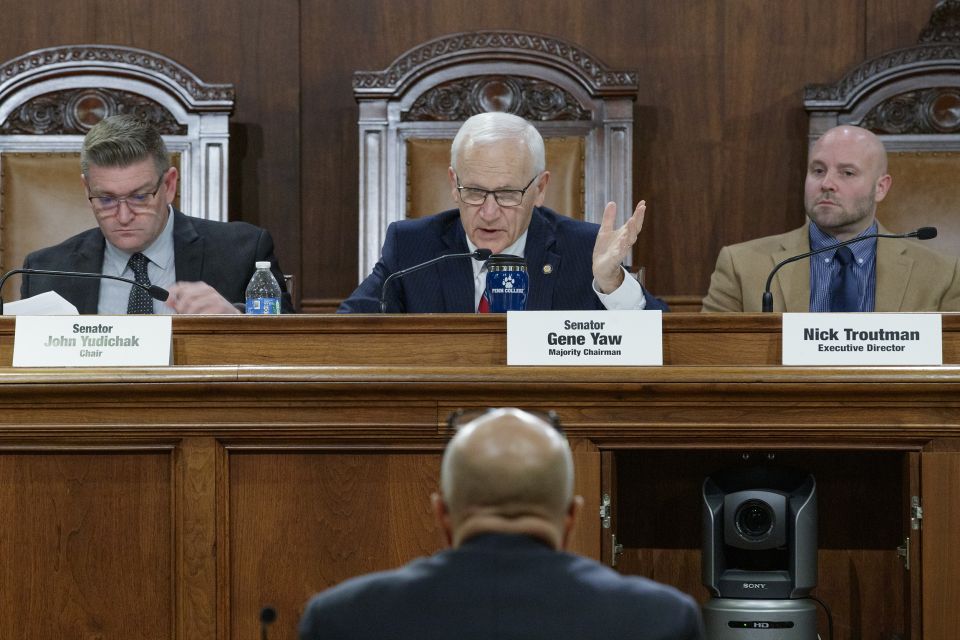Senate backs postponement of diesel emissions requirements

Senator Gene Yaw, R-Williamsport, co-chairs a joint committee hearing of the Senate Environmental Resources and Energy Committee and the Community Economic and Recreational Development Committee on Tuesday in Harrisburg
A bill extending the state’s limitation on diesel engine emission requirements is one-third of the way to becoming law.
The state Senate recently passed Senate Bill 1030, which delays California Air Resources Board certification for diesel engines sold in the state through 2026. Sen. Michele Brooks, R-Crawford/Erie/Mercer/Warren, and Sen. Scott Hutchinson, R-Butler/Clarion/Forest/Venango/Warren, both voted in favor of the bill, which passed the Senate by a 31-18 vote.
The state Department of Environmental Protection had already suspended enforcement of the requirement temporarily on Nov. 8, 2021, through July 31, 2023. Senators are backing an additional three years suspension of the California emissions certification until new federal requirements are finalized.
“There are new regulations that will be coming out under the federal requirements by 2026, so it seems to make little sense to have maybe three years of imposing a regulation that only applies to California and Pennsylvania,” said Sen. Gene Yaw, R-Williamsport and sponsor of Senate Bill 1030. “That would obviously during that period of uncertainty cause significant problems for diesel engine sales in Pennsylvania when they could just go outside of Pennsylvania to a state that has not been involved with this California Air Resources Board requirement.”
There are 14 states following California emissions rules, including New York, Connecticut and Virginia. Federal emissions standards tend to be easier to meet than the California standards.
Yaw said in his legislative memorandum that ending the CARB certification requirement could save individuals and businesses thousands of dollars on the purchase price of diesel engines. The legislation has no effect on compliance with existing federal regulations.
The “Risk Reduction Plan to Reduce Particulate Matter Emissions from Diesel-Fueled Engines and Vehicles,” approved by CARB in September 2000, set goals to reduce diesel emissions in California by 75% by 2010 and 85% by 2020. Ongoing CARB initiatives for new and in-use engines aim to reduce ambient ozone, particulate matter and air pollution to levels protective of public health by the mid-2030s in all urban areas, and to eventually transform all vehicles on- and off-road to zero emissions.
“What this would do is it would require Pennsylvania to comply with all federal requirements,” Yaw said. “There are no changes along those lines. It just takes out the uncertainty of complying with the California Air Resources Board.”


